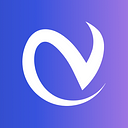Best format varies with type of application. For e.g. a fresher’s resume for job will look different from her resume for MS application which will be very different from an experienced person’s resume for jobs and so on.
I specialize in guiding MBA/MS/PhD applicants, so will talk in more depth about those first. But most of the advice is applicable to any type of candidate. Create your own resume online here.
1. Context
First, it is important to understand that one resume does NOT work for all. Resumes should be specifically tailored for the role you are applying to. The more relevant you make them for the role, more your evaluator will be impressed. As an applicant, you want your resume to be coherent with rest of your application. So, while your experiences, education and background are factual information, what to highlight is a matter of judgment.
For e.g. if you are showing interest in research/applying for PhD etc, your highlight should be on your research projects and publications. Similarly, if you are applying for a MBA/MCS kind of program (geared towards landing corporate jobs upon graduation), your focus should be on professional skills, industry experience etc. For job applicants, a smart trick here is to intentionally include the keywords relevant to the position.
Many a times, employers use software to scan and filter resumes based on certain keywords. If you use a generic resume and have not tailored to that role, most likely you are missing out on using the right keywords. You will never get through the first filter itself. For e.g. Technical employers might be looking for ‘project management’, ‘Java’, ‘hadoop’ etc as keywords.
2. Content
I cannot stress this enough, please DO NOT INCLUDE an objective section or a references section. And, you should NOT mention your gender or marital status. Now, typically a graduate school applicant’s resume will contain the following sections:
Full Name and Contact Information: address, phone number and email.
- Education: List in reverse chronological order your college and high school information (no certification or non-school education should be listed here). If you already have a graduate degree, skip high school. Must contain institute name, program of study, major and month/year of graduation. Optionally, can include academic honors, scholarships, club positions or any other achievement you want to highlight (see sample resume).
- Experience/Internships: Any full-time/part-time work should be mentioned under one/two of these categories. If you have diverse experience and don’t know which heading is most suitable, you can club it under ‘Related Experience’ too. You can have separate Research and Industry experience sections depending on your profile. If you are a fresher, you can just mention Internships or Research Experience — whichever is more significant. Sometimes, students do their final year projects with some external research/industrial entity — that can be mentioned here under Internship. So, use your judgment.
- Publications: Especially important for PhD or other research based programs. Academic Projects/Coursework/Special Skills — This should list projects, skills and coursework relevant to your application including final year projects (if not mentioned under internships etc). Do not include every trivial coursework and skill. Skills can include any computer/softwares skill or something relevant to your field.
- Honors: List any academic or extra-curricular certifications, awards, scholarships etc.
- Extra-curricular: List your non-trivial hobbies/interests/activities/leadership positions. Try to mention only slightly uncommon and interesting things.
For other kind of applicants, the section will have to be tailored accordingly. For senior roles, one would emphasize on leadership activities and a creative role might demand a portfolio section. So, play around with the sections as per the position you are applying for.
3. Language
Use phrases instead of full sentences and write in first person. Never use passive voice. Spell check twice, nothing leaves a worse taste in mouth than a typo on resume. Resume is all about mentioning your accomplishments and what you are capable of. Keeping this in mind, every accomplishment (under projects, work experience, education or extra curriculars) should be listed as a bullet point.
Each bullet point should be an action phrase and likely begin with a verb. It is important to quantify your achievements wherever possible. Thus, your phrases might look like-
implemented a new algorithm that reduced the market lag by 65%
helped increase affiliate revenue by 75% in 2 months
led a team of 3 students to revamp the annual magazine of our college and improved the circulation by 40%
4. Formatting
Our goal is to keep our resume readable without going too long. So, here are some points to remember:
- Don’t use dense blocks of text anywhere as they are difficult to read. Use bullet points.
- Keep balanced amount of white spaces. Too much and you are wasting space, too less and you make it unreadable.
- Use standard fonts. I like Book Antiqua/Palatino 10 pt mostly. Do print your final version and see how it looks on paper.
- If mentioning links, better to mention full http address since hyperlinks may not work. Use billy for very long URLs
Lastly but most importantly — your MS/PhD RESUME LENGTH SHOULD NOT EXCEED 1.5 PAGES (2 if lot of publications or projects). There is no exception to this rule. If you are exceeding, you are writing too much and no, it doesn’t matter how much stuff you have done. Even the most experienced and accomplished people can fit their resume in one page, so you have no explanation to exceed beyond this.
